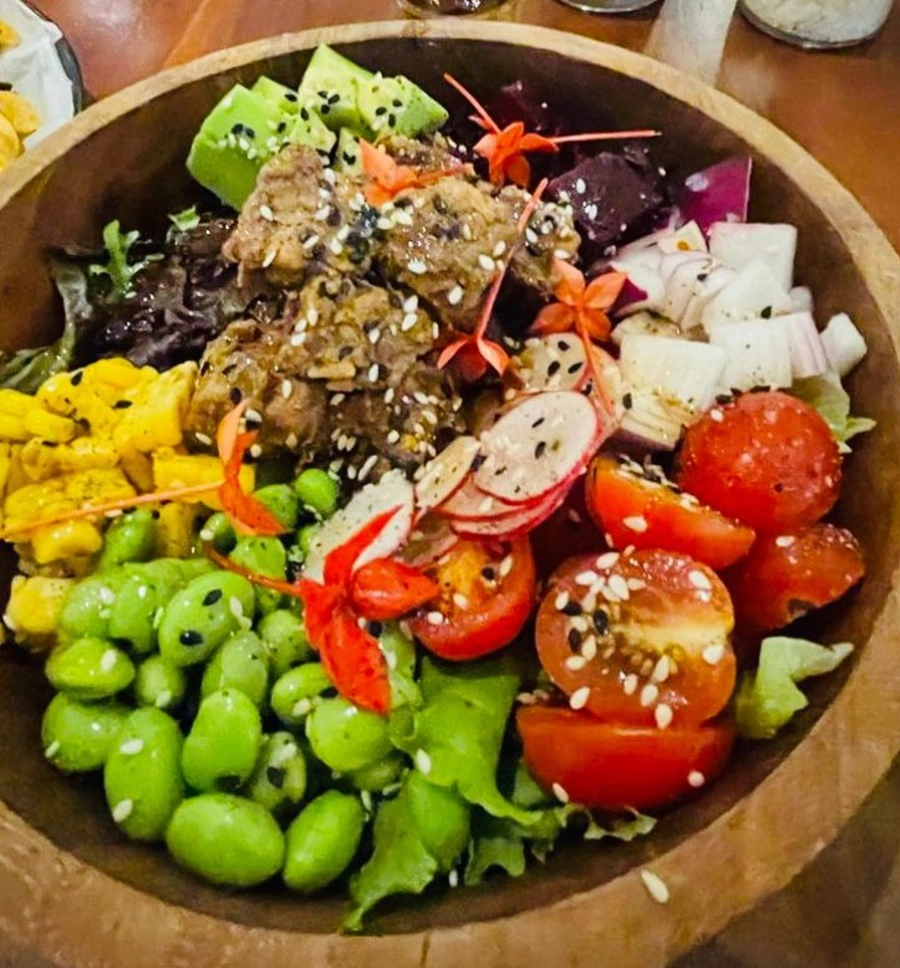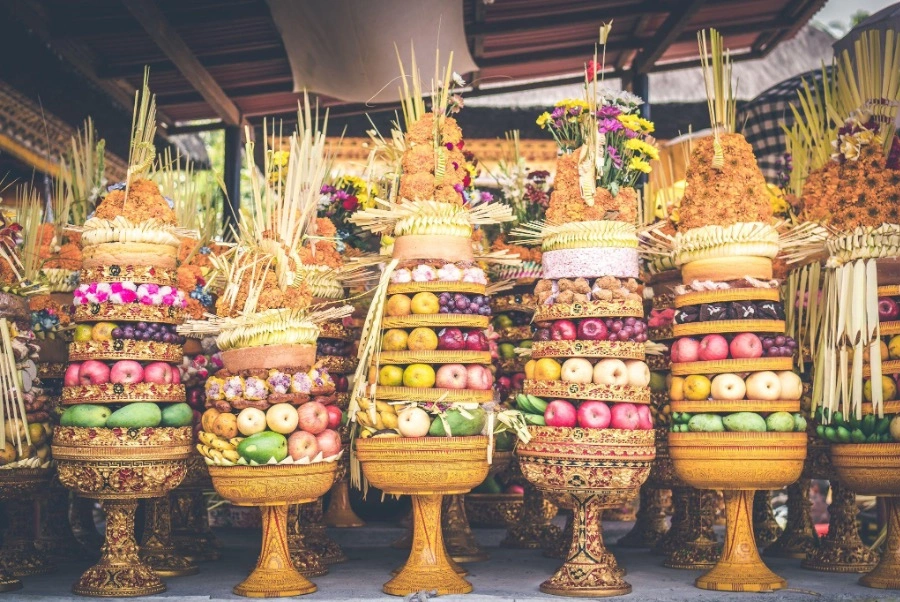In the heart of Indonesia, on the fabled Isle of the Gods, Bali’s rich culinary tapestry unfurls. As World Food Day dawns, it’s an opportune moment to traverse the intricate journey of Bali’s food culture, from its ancient roots to its contemporary dynamism. This journey isn’t just about flavors and ingredients; it’s an ode to the Balinese ethos of community, care, and inclusivity, beautifully interwoven in their relationship with food.
Like its diverse topography, Bali’s food story is layered and varied. Historically, the island’s traditional diet was hinged on what the fertile volcanic soil and abundant seas could offer. Rice terraces sculpted the landscape, and ‘nasi’ (rice) became the backbone of Balinese cuisine. Ceremonial feasts showcased ‘babi guling’ (suckling pig) and ‘ayam betutu’ (spiced chicken), reflecting the island’s Hindu influences. These meals, prepared with a medley of indigenous herbs and spices, were not just about sustenance; they were, and remain, integral to the island’s religious and community rituals.

However, as the world became more interconnected, so did Bali’s culinary repertoire. The waves of traders, settlers, and tourists introduced many ingredients and cooking methods. The Balinese embraced these changes with their inherent adaptability while retaining their unique flavors. Today, in the bustling streets of Seminyak or Ubud, one can savor a traditional ‘lawar’ (mixed salad with coconut grating) alongside modern renditions of international dishes, all imbued with that distinctive Balinese twist.
The present-day Balinese food scene is a delightful blend of traditional and contemporary. While eateries serve global cuisines to cater to the international crowd, there’s a conscious movement to promote local dishes. Farm-to-table restaurants, organic cafes, and culinary workshops focus on indigenous ingredients and age-old cooking techniques, ensuring that Bali’s food legacy remains vibrant and relevant.
But what truly sets Bali apart is the deep-seated spirit of ‘Tri Hita Karana’ – a philosophy emphasizing the balance between humans, nature, and the gods. In the context of food, this translates to a sense of community and shared responsibility. It’s evident in the island’s ‘subak’ system, a cooperative water-sharing method for paddy fields, which ensures every farmer gets his fair share. The same spirit is mirrored in the daily food offerings to the deities and the communal kitchens during temple festivals.

World Food Day in Bali isn’t just another date on the calendar; it reflects an age-old tradition of inclusivity. The Balinese have always believed in the power of food as a binder. In villages, it’s common to see neighbors sharing harvests or meals, ensuring no one goes hungry. Special occasions see entire communities coming together, each household contributing a dish, reinforcing the idea that everyone has a role to play and a mouth to feed regardless of their status.
In a world where individualism often overshadows community welfare, Bali is a beacon of hope and a reminder of the joys of shared experiences. The island’s food culture, with its roots in community and spirituality, is a testament to the idea that when we eat, it’s not just the body that’s nourished but the soul, too.
This World Food Day, as we celebrate global cuisines and culinary innovations, let’s also take a moment to appreciate the cultures that remind us of the true essence of food: an instrument of love, care, and unity. And Bali, with its rich food traditions and inherent spirit of inclusivity, exemplifies this sentiment beautifully.




